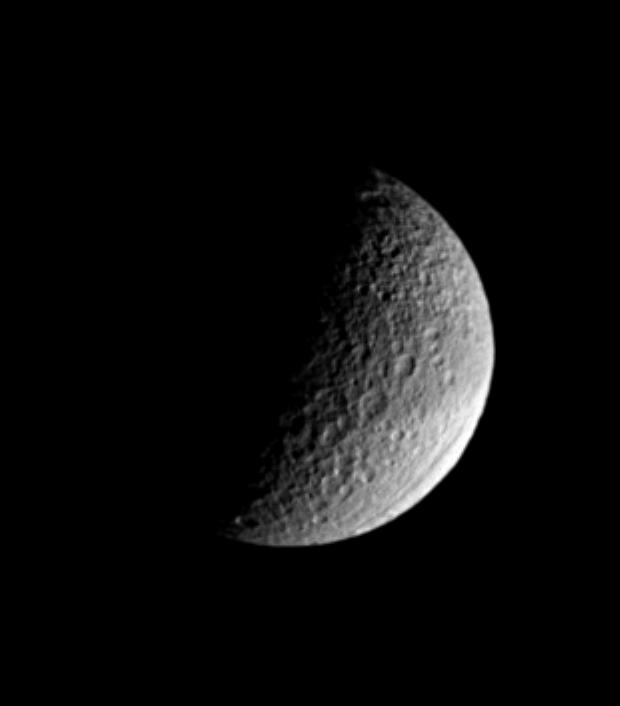Tethys Mysteries

| PIA Number | PIA07536 |
|---|---|
| Language |
|
Saturn's moon Tethys, named for a sea goddess, shows off two of its more puzzling features in this Cassini image. Ithaca Chasma, near lower right, stretches for more than 1,000 kilometers (620 miles) across the moon's surface. The origin of this canyon system, which is 100 kilometers (60 miles) across on average, is not completely understood, but might have resulted from the impact that created the giant crater Odysseus. Tethys is 1,071 kilometers (665 miles) across.
Also notable in this view is the dark band that girdles the moon's equator. The nature of this feature may be better understood following Cassini's planned close flyby in September, 2005.
The lit surface visible here is on the moon's Saturn-facing hemisphere; north on Tethys is straight up.
The image was taken in visible light with the Cassini spacecraft narrow-angle camera on May 22, 2005, at a distance of approximately 884,000 kilometers (550,000 miles) from Tethys and at a Sun-Tethys-spacecraft, or phase, angle of 97 degrees. Resolution in the original image was 5 kilometers (3 miles) per pixel. The image has been contrast-enhanced and magnified by a factor of two to aid visibility.
The Cassini-Huygens mission is a cooperative project of NASA, the European Space Agency and the Italian Space Agency. The Jet Propulsion Laboratory, a division of the California Institute of Technology in Pasadena, manages the mission for NASA's Science Mission Directorate, Washington, D.C. The Cassini orbiter and its two onboard cameras were designed, developed and assembled at JPL. The imaging team is based at the Space Science Institute, Boulder, Colo.
For more information about the Cassini-Huygens mission visit http://saturn.jpl.nasa.gov . The Cassini imaging team homepage is at http://ciclops.org .
Credit: NASA/JPL/Space Science Institute
